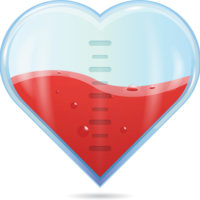When I focus on the question “How can I become a more loving human being?” a wild bunch of interesting questions burst forth. What is love? How do I define it? How much do I love? How can I measure it? If I discover that I’m not a very loving person, is there any way I can increase my capacity as a lover? Is love learnable? Teachable? If so, by whom? Could I practice being more loving? How?
But the first and most important question any person can ask is “How can I become a more loving human being?” If I don’t ask this question first, I will fail to focus my attention on acquiring the skills necessary for becoming a loving human being first, says Sam Keen in the book To Love and Be Loved (Bantam, 1997).
He reminds us that love is an action that is within our power; it is a collection of behaviors and skills that we may cultivate throughout a lifetime. A child may run gracefully or have a gift for music, but to become a great athlete or musician, s/he must spend many hours practicing and improving his/her skills. The same is true for an adult who wants to be more skilled in love.
No matter when and between whom it happens, love is always for the first time. Suddenly, or gradually, you begin to love a sweetheart, a mate, a child, a grandchild, a friend, a parent, (ital) inordinately.(ital) Your beloved, rather than your ego, becomes the center of your concern. You stop calculating and measuring your affection and give without counting the cost, and without keeping tight tabs as to who did what for whom. You don’t bargain or withhold. You surrender, stop playing power-games, cease trying to control or manipulate—and you cease giving half-heartedly—and dedicate yourself to being whole hearted. Your greatest delight becomes the giving of delight.
At the dead end of our addictions to booze, success, T.V., sports, food, and work, we always discover that what we were blindly running after was love—and that all we ever caught was a poor substitute.
Keen offers some questions to ponder if you wish to deepen your understanding of and capacity to love:
- What priority does love have in the hierarchy of your days? Who do you love? In what ways? By whom are you loved? How satisfied or unsatisfied are you with your love life—in the broadest sense of the term? What is the nature of the love vacuum in your life? Do you feel cheated? Abandoned? Not loved enough? What/who would fill the vacuum?
- What style of loving was practiced in your family? What was the vocabulary of love—touch, discipline, food, gifts, nurturing your talents? Who loved and was loved by whom? Do you feel you were unloved, ignored, abused? Did you have to give up, hide or reject anything to purchase love? How is the past still controlling your present? How did your family’s way of loving or not loving shape your present life?
I will continue this discussion in next week’s column.
“In spite of the deep-seated craving for love, almost everything else is considered to be more important than love: success, prestige, money, power—almost all our energy is used for the learning of how to achieve these things, and almost none to learn the art of loving.” Erich Fromm, “The Art of Loving”


